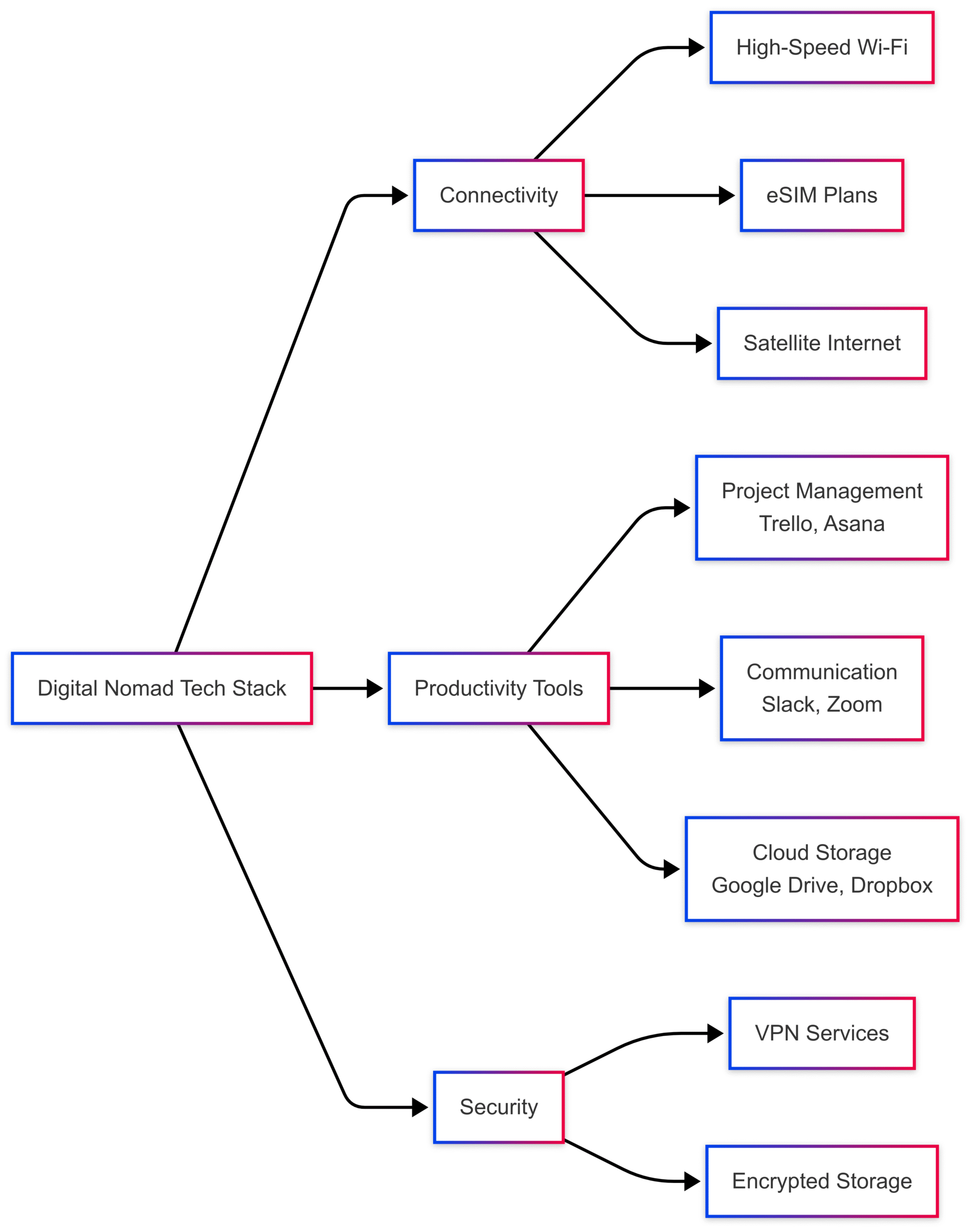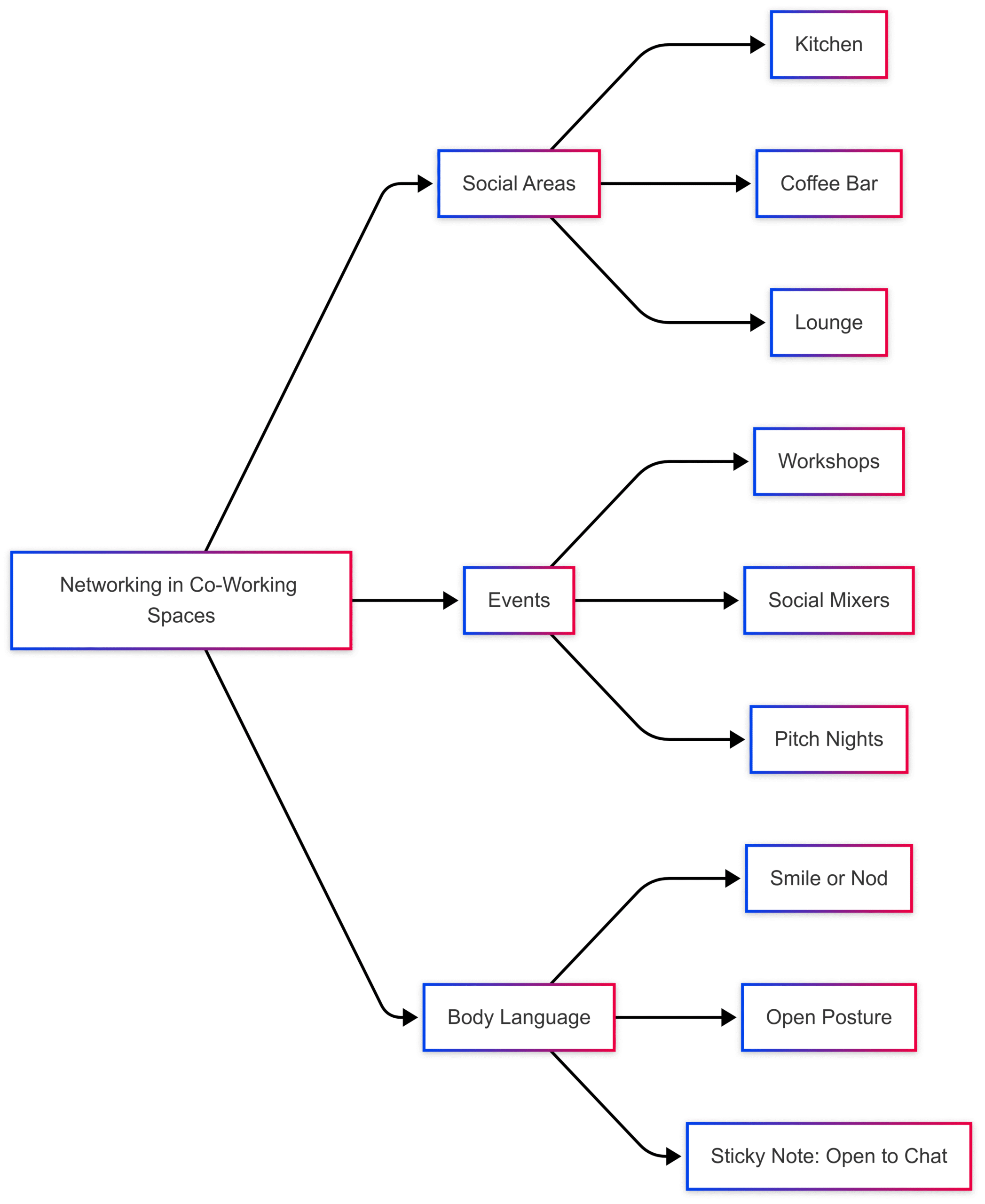Discover how coworking spaces empower digital nomads with professional workspaces, community, and networking. Explore their role in the nomad lifestyle.
The digital nomad lifestyle has redefined work, blending freedom, flexibility, and global exploration. Enabled by advancements in technology, digital nomads work remotely from diverse locations, from bustling cities to remote beaches. However, this lifestyle presents unique challenges, such as finding reliable workspaces that balance productivity with connectivity. Co-working spaces have emerged as a cornerstone of this movement, offering professional environments, fostering community, and providing essential resources. This article explores the pivotal role of co-working spaces in supporting digital nomads, delving into their benefits, technological underpinnings, and socioeconomic impacts, while offering practical insights for nomads embarking on this journey.
The Rise of Digital Nomadism
Digital nomadism has transitioned from a niche lifestyle to a mainstream work model, driven by technological advancements and shifting attitudes toward work. High-speed internet, cloud computing, and collaborative tools have untethered professionals from traditional offices, enabling work from virtually anywhere. This shift has been accelerated by global trends toward remote work, with millions embracing location-independent careers.
The appeal of digital nomadism lies in its flexibility. Professionals can explore new cultures, live in cost-effective regions, and design schedules that suit their lifestyles. However, challenges like unreliable internet, distractions, and isolation can hinder productivity. Co-working spaces address these pain points by offering structured environments tailored to remote workers’ needs, making them indispensable in the digital nomad ecosystem.
Why Co-Working Spaces Matter for Digital Nomads
Co-working spaces are more than shared offices; they are dynamic hubs that cater to the unique demands of digital nomads. Below are the key reasons why these spaces are essential:
1. Professional Work Environment
Co-working spaces provide structured, distraction-free environments that enhance focus and productivity. Unlike cafes or home setups, they offer ergonomic workstations, high-speed internet, and amenities like printers and meeting rooms. For digital nomads, who often work in unfamiliar settings, this consistency is invaluable. Private offices and quiet zones cater to those needing solitude, while open areas foster collaboration.
2. Sense of Community
Isolation is a common challenge for digital nomads working in new locations. Co-working spaces counter this by fostering a sense of belonging. They attract like-minded professionals—freelancers, entrepreneurs, and remote workers—who share similar lifestyles. Communal areas, such as lounges and kitchens, encourage organic interactions, helping nomads build connections and combat loneliness.
3. Networking Opportunities
Co-working spaces are networking goldmines. They bring together diverse professionals, from coders to marketers, creating opportunities for collaborations and partnerships. Many spaces host events like workshops, pitch nights, and social mixers, facilitating meaningful connections. For digital nomads, these interactions can lead to new projects, mentorships, or even lifelong friendships.
4. Flexibility and Cost-Effectiveness
Unlike traditional office leases, co-working spaces offer flexible membership plans, such as daily passes, weekly rates, or monthly subscriptions. This allows nomads to pay only for the time and resources they need. For example, a hot-desk pass typically costs $20–$50 per day, while monthly memberships range from $100–$400, depending on the location and amenities. This affordability makes co-working spaces a practical alternative to renting private offices or relying on inconsistent cafe Wi-Fi.
5. Learning and Skill Development
Many co-working spaces host workshops, webinars, and mentoring sessions, enabling nomads to upskill. Topics range from coding bootcamps to marketing strategies, providing access to expert knowledge. These events not only enhance professional growth but also create additional networking opportunities, enriching the nomad experience.
6. Access to Essential Resources
Co-working spaces are equipped with amenities critical for remote work, including high-speed Wi-Fi, conference rooms, and printing services. Some offer advanced features like smart desks, podcast studios, or 24/7 access, catering to diverse professional needs. For nomads, these resources eliminate the hassle of sourcing reliable tools in new locations.
7. Minimizing Distractions
Working from hotels, cafes, or tourist-heavy areas can be distracting. Co-working spaces provide a professional setting that helps nomads stay focused. The presence of other motivated professionals creates a contagious work ethic, boosting productivity and helping nomads meet deadlines.
8. Cultural Integration
Some co-working spaces incorporate local cultural elements, such as art or cuisine, into their design. This allows nomads to engage with the host country’s culture while maintaining a productive work environment, striking a balance between exploration and work.
The Technological Backbone of Digital Nomadism
The digital nomad lifestyle relies heavily on robust technology. Co-working spaces leverage these advancements to create seamless work experiences.
Connectivity Solutions
Reliable internet is a non-negotiable for digital nomads. Co-working spaces invest in enterprise-grade Wi-Fi to support bandwidth-intensive tasks like video conferencing and large file transfers. In regions with limited infrastructure, satellite internet services like Starlink provide high-speed connectivity, ensuring nomads stay online even in remote areas.
eSIM technology has also revolutionized connectivity. Unlike traditional SIM cards, eSIMs allow nomads to switch carriers digitally, providing seamless data access across countries. For example, services like Airalo offer global eSIM plans starting at $9 for 1GB, with no contracts or physical SIM changes required.
Digital Tools for Productivity
Nomads rely on tools like Trello, Asana, and Slack to manage projects and communicate with teams across time zones. Cloud platforms like Google Drive and Dropbox enable access to files from any device, while VPNs and encrypted storage ensure data security on public networks. Co-working spaces often integrate these tools into their infrastructure, offering secure Wi-Fi and tech support to streamline workflows.
Chart: Digital Nomad Tech Stack
Below is a visual representation of the essential tools and technologies that power the digital nomad lifestyle, often supported by co-working spaces.

The Global Co-Working Revolution
Co-working spaces have evolved far beyond urban hubs, spreading to secondary cities, rural areas, and even unconventional settings like beachside containers or mountain lodges. This expansion aligns with the preferences of digital nomads seeking unique destinations.
Innovative Co-Working Models
Global networks like WeWork and Impact Hub offer memberships that grant access to hundreds of locations worldwide, starting at $200/month for hot-desk access. Niche spaces cater to specific groups, such as tech startups, NGOs, or digital nomads, fostering tailored communities. Co-living spaces, like those offered by Sun & Co. in Spain, combine accommodation and workspaces, creating immersive environments for nomads.
Some spaces integrate sustainability, using solar power or recycled materials, while others prioritize wellness with yoga rooms or healthy cafes. Advanced technologies, such as app-based room reservations or AI-driven climate control, enhance user experiences.
Table: Comparison of Co-Working Membership Plans
| Provider | Plan Type | Cost (USD) | Features | Global Access |
|---|---|---|---|---|
| WeWork | Hot Desk | $200–$400/month | Wi-Fi, printing, meeting rooms | Yes |
| Impact Hub | Flexible Desk | $150–$300/month | Community events, workshops | Yes |
| Local Co-Working | Day Pass | $20–$50/day | Wi-Fi, coffee, open seating | No |
| Co-Living Space | Monthly Membership | $500–$1,200/month | Accommodation, workspace, social events | Varies |
Socioeconomic Impact of Digital Nomads
Digital nomads are reshaping economies and cultures in their host destinations. Cities like Chiang Mai and Lisbon have become nomad hotspots, benefiting from extended stays and local spending. For example, nomads spend an average of $1,500–$2,500/month on accommodations, food, and services, boosting local economies.
Governments are responding with digital nomad visas, such as Estonia’s, which allows stays of up to one year for $100–$200 in application fees. These programs attract professionals without straining local job markets. However, challenges like rising rents in popular areas highlight the need for sustainable integration.
Co-working spaces play a role in fostering community connections. Events like skill-sharing workshops or cultural exchanges bridge nomads and locals, promoting mutual understanding. Platforms like Meetup and Nomad List further facilitate these interactions, helping nomads find events and co-working spaces tailored to their interests.
Practical Tips for Digital Nomads Using Co-Working Spaces
For those starting their digital nomad journey, co-working spaces can be a game-changer. Here are actionable tips to maximize their benefits:
- Research Spaces in Advance: Use platforms like Coworker.com or Nomad List to find spaces with reliable Wi-Fi, community events, and your preferred vibe. Check Instagram or websites for event calendars.
- Leverage Social Areas: Kitchens, coffee bars, and lounges are ideal for striking up conversations. Attend events like weekly dinners or tech talks to meet others naturally.
- Signal Openness: A smile, a quick “hey,” or a sticky note saying “Open to Chat” can invite interaction without disrupting others. Respect cues like headphones, which signal focus.
- Choose Flexible Plans: Opt for day passes or short-term memberships to maintain flexibility. Compare costs to ensure they fit your budget.
- Invest in Connectivity: Carry an eSIM or portable Wi-Fi device as a backup. Services like monis.rent offer equipment rentals, such as monitors ($10–$30/week), to enhance your setup.
- Balance Work and Culture: Use co-working spaces to stay productive during work hours, freeing up time to explore local culture afterward.
Chart: Networking in Co-Working Spaces
This chart outlines strategies for building connections in co-working spaces.

Addressing Common Challenges
Digital nomads face unique hurdles, and co-working spaces offer solutions:
- Healthcare: Nomads should invest in international health insurance (e.g., SafetyWing, $40–$100/month) and research local medical facilities.
- Taxes: Consult accountants specializing in expatriate taxation or use tools like TaxAct for multi-jurisdiction compliance.
- Isolation: Co-working spaces with active communities and events help combat loneliness, offering both professional and social connections.
The Future of Co-Working and Digital Nomadism
As technology advances, co-working spaces will continue to evolve. Virtual co-working platforms, like those offering online events and networking, are gaining traction, allowing nomads to connect globally. The integration of AI-driven tools, such as personalized workspace recommendations, will further enhance user experiences.
The socioeconomic impact of digital nomads will grow as more destinations develop infrastructure to attract them. Co-working spaces will remain central, serving as hubs for innovation, collaboration, and cultural exchange. For nomads, they offer a stable yet flexible base to pursue their careers while exploring the world.
Conclusion
Co-working spaces are the backbone of the digital nomad lifestyle, providing professional environments, fostering community, and enabling networking. They address the challenges of remote work—unreliable internet, distractions, and isolation—while offering flexibility and cost-effective solutions. As the nomad movement grows, these spaces will continue to evolve, integrating advanced technology and catering to diverse needs. For aspiring digital nomads, co-working spaces are not just a place to work but a gateway to a connected, productive, and fulfilling lifestyle. Embrace the opportunities they offer, and let them empower your journey of work and exploration.
Please share this The Role of Co-Working Spaces in the Digital Nomadism Era with your friends and do a comment below about your feedback.
We will meet you on next article.
Until you can read, Tips for Managing Work and Finances as a Digital Nomad
